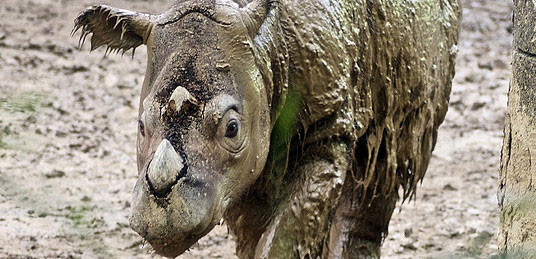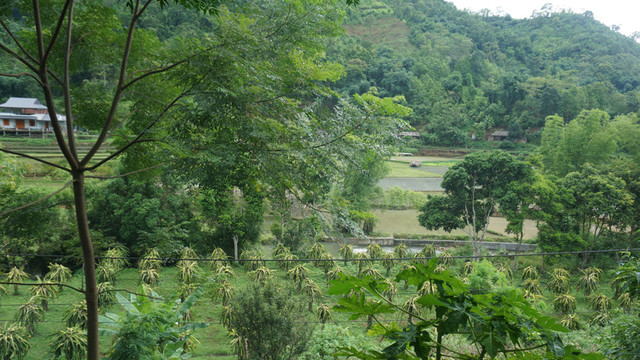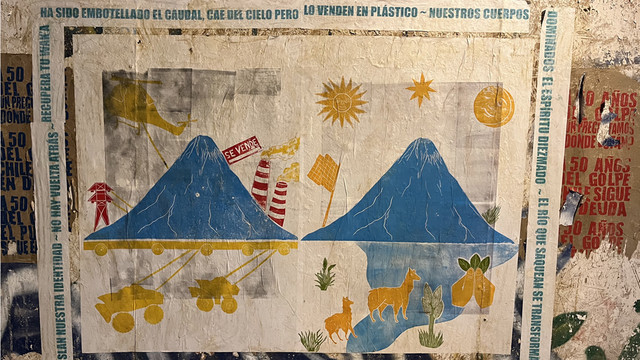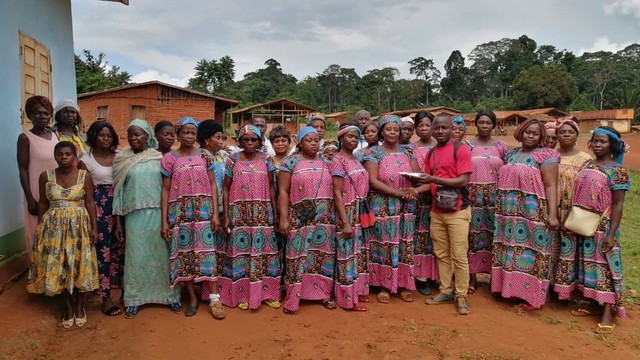World Conservation Congress: key themes and a new leader to watch
The World Conservation Congress always provides an arena for the arguments and tensions that lie at the heart of us making progress to build a fairer, more sustainable planet. The role of markets and the green economy and the risks of monetising nature were two key themes that emerged.


A Sumatran Rhinoceros - just one of the 100 most threatened species listed in a new report.
Markets can’t meet everyone’s needs
In the World Leaders’ Dialogue on Nature+Food, I spoke of the need to understand the global food system as it actually is, rather than how we might wish it to be. It’s an unplanned patchwork with billions of actors, small and large, stitched together in many and various ways, with huge asymmetries of power and money between them. It’s not surprising it doesn’t work very well since markets, on their own, can’t hope to meet everyone’s needs, especially those of poor groups. With a billion undernourished and a billion overfed, we are putting terrible strains on both the natural and human fabric of our earth. These strains are only likely to increase with many of the most vulnerable regions worst hit by climate change. Yet, careful investment in water and soils would reap dividends for local people, and for the environment on which their prosperity depends, especially in many parts of Africa.
Green economy and growth
It was heartening to hear Peter Bakker, President of the World Business Council for Sustainable Development make a strong commitment to putting natural and social capital into the accounting rules for business at the World Leaders’ Dialogue on green economy “Green Growth: Myth or Reality?”. If he could swing big business behind this line, that would make a big difference. But it’s hard to know whether WBCSD, a CEO-led organization which aims to create a more “sustainable future for business, society and the environment” just speaks to the converted.
Finland’s Minister for International Development, Heidi Hautala, said her top priority would be to tax global financial transactions, investing the revenues into more sustainable and equitable patterns of development. And Achim Steiner, UNEP’s Director General, argued that investment in access to sustainable energy for all would catalyse green growth in many parts of the world neglected to date.
But it’s not all about the bottom line. At the same session, Dr. Kinzang Dorji, Former Prime Minister of Bhutan spoke of his experience of developing alternatives to Gross Domestic Product, focusing on happiness, wellbeing and spiritual development, rather than just material well-being and economic growth.
Priceless or Worthless?
IIED believes that payments for environmental services can play a role in protecting nature, so long as governments guide, govern and regulate such markets. You can read this blog or this publication for more on our thinking.
A new report by the Zoological Society of London and IUCN launched at the conference warns that monetising nature, and not valuing it for itself, can hold risks for many endangered species.
More than 8,000 scientists from the IUCN Species Survival Commission (IUCN SSC) identified 100 of the most threatened animals, plants and fungi on the planet. The report warns that they could die out because they’re not of obvious immediate benefit to humans.
"The donor community and conservation movement are leaning increasingly towards a ‘what can nature do for us’ approach, where species and wild habitats are valued and prioritised according to the services they provide for people,” Professor Jonathan Baillie, ZSL’s Director of Conservation said. “This has made it increasingly difficult for conservationists to protect the most threatened species on the planet. While the utilitarian value of nature is important, conservation goes beyond this. Do these species have a right to survive or do we have a right to drive them to extinction?”
One approach doesn’t obviate the other – but it is an important reminder to us that all species have a value in nature, even if not to us.
China’s leadership of the IUCN: One to watch
The new Chair of IUCN is to be Zhang Xinsheng, a politician from China, who recognises the hugely important and noble mandate held by the IUCN. He promises greater visibility for IUCN and its agenda in the years ahead, effective delivery of the agreed programme and mobilisation of resources to make it happen. China’s leadership of this agenda will be particularly interesting to watch over the next few years, with rising tensions in the region over the South China Sea and a growing realisation within the Chinese leadership that planetary boundaries mean that future prosperity for China’s people cannot be built on western patterns of consumption.


